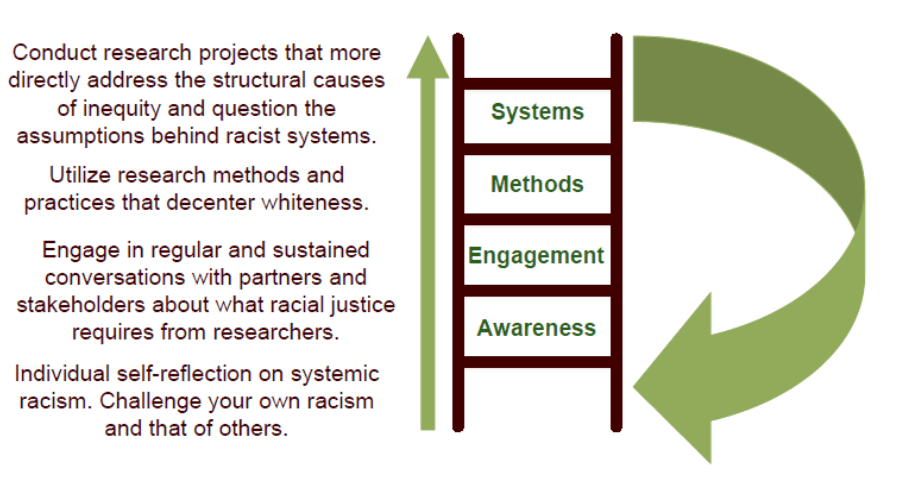Antiracism Statement From C3EN Directors
A long history of racial segregation in Chicagoland has resulted in neighborhoods with communities of color that are disproportionately burdened by the social determinants of health and limited access to high quality health care services. These neighborhoods are geographic “hotspots” where high numbers of residents suffer from multiple chronic conditions. The Chicago Chronic Condition Equity Network (C3EN) is committed to an antiracist agenda in our everyday work to address the structural underpinnings of health disparities.
Elbert Huang and Beth Lynch C3EN Co-Directors
What does it mean to be antiracist?
“Antiracism is the active process of identifying and eliminating racism by changing systems, organizational structures, policies and practices and attitudes, so that power is redistributed and shared equitably” (attributed to NAC International Perspectives: Women and Global Solidarity).
Health outcomes for minority populations are often the result of disinvestment in communities across multiple sectors, such as economic, education, food, transportation and healthcare. Research can address these inequities by:
- Identifying health disparities and understanding the systems that lead to inequitable outcomes
- Partnering with community organizations that are already working on addressing the systemic problems
- Creating and enacting interventions that address health disparities
- Engaging in ongoing conversations with stakeholders and partners about what racial justice requires from researchers
How can research projects or researchers be antiracist?
Antiracism Framework for Research

Incorporating antiracist practices in a research project or program should be intentional and can be incorporated at various points in a research project.
Thoughtful inclusion of community input can improve research projects by bringing in diverse perspectives to multiple aspects of a research project.
Community partners can provide input on community priorities and potential ideas for future research projects. Community voices can also give feedback on the acceptability of specific research tools or procedures.
The Role of Community Engagement in Research
Community Engagement in a research project can take many forms.
- Inform: Disseminate information to a particular audience or community through a website, social media, printed materials, talks or meetings.
- Consult: Gather information or ideas from community through surveys, interviews, focus groups, forums or townhalls
- Involve: Direct involvement of community stakeholders requires ongoing communication with the community partner to understand their concerns and desires at multiple points throughout the project.
- Collaborate: Partner with community stakeholders in every aspect of the research project from designing an intervention, execution of the project and analysis of the results.
- Shared Leadership: Final decision making is at the community level.
If you do not know how to incorporate community engagement into your project, please contact us and we can work with you to identify appropriate community stakeholders.
We also have funds available through our minigrant program to support formative and summative research activities that strengthen community partnerships related to health disparities research. If you have any questions about this, or are interested in applying, please contact us.
The Tamarack Institute’s Index of Community Engagement Techniques is a thorough guide of community engagement practices organized by engagement level: https://www.tamarackcommunity.ca/library/index-of-community-engagement-techniques
Additional Antiracism Resources
AAMC https://www.aamc.org/news-insights/aamc-releases-framework-address-and-eliminate-racism
UChicago Consortium on School Research: https://consortium.uchicago.edu/our-commitment-to-racial-equity-and-justice
University of Minnesota Libraries: https://libguides.umn.edu/antiracismlens
Library of Rush University Medical Center: https://rushu.libguides.com/c.php?g=1052933&p=7645679
Tamarack Institute’s Index of Community Engagement Techniques: https://www.tamarackcommunity.ca/library/index-of-community-engagement-techniques
